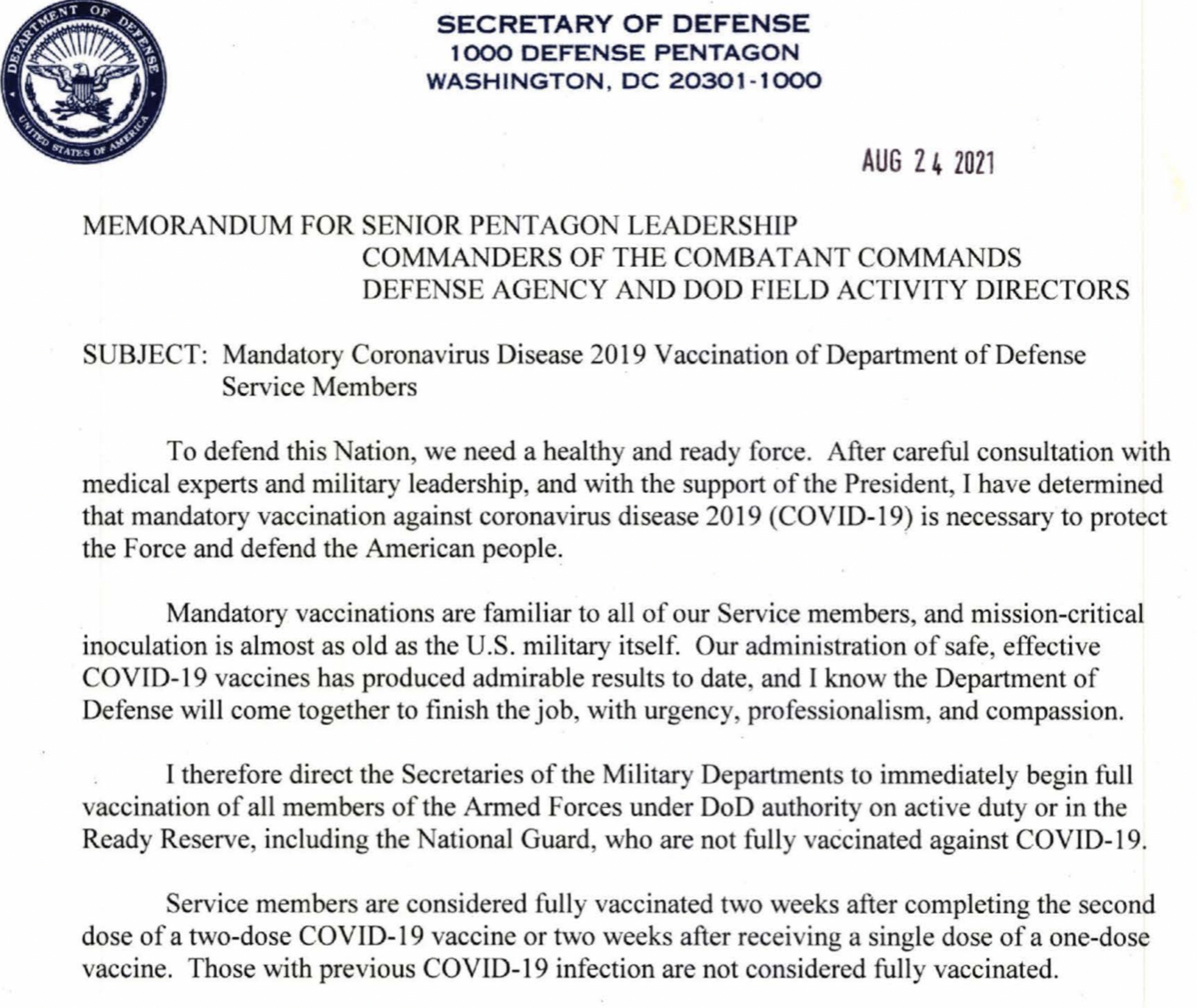U.S. Military Vaccine Mandate: A Teachable Moment.

All Global Research articles can be read in 51 languages by activating the “Translate Website” drop down menu on the top banner of our home page (Desktop version).
Visit and follow us on Instagram at @crg_globalresearch.
***
On August 25, two days after the US Food and Drug Administration fully approved the Pfizer-Biontech COVID-19 vaccine, Secretary of Defense Lloyd Austin ordered “full vaccination of all members of the Armed Forces.”
Cue outrage and objection. Some officers have resigned their commissions; some enlisted personnel seem willing to risk court-martial and dishonorable discharge rather than get vaccinated. Some claim the mandate violates their rights or lacks a legal basis.
In the quarter century since my honorable discharge from the US Marine Corps, I’ve occasionally been asked by friends to have “the talk” with their teenagers who are considering military careers.
In my view, “the talk” shouldn’t be about whether joining the armed forces is a good idea. That’s a personal decision. “The talk” should be an unvarnished description of what to expect.
Here’s a short version of “the talk,” for those considering enlisting and those who have, in the age of the COVID-19 vaccine mandate:
For the entirety of your military career, you will spend most of your waking hours (and you will be roused from sleep many, many times) doing what you’re told to do. Period.
You’ll go where you’re told to go. You’ll wear what you’re told to wear. You’ll eat what you’re given, when it’s given to you, and you’ll have your hair cut as directed.
You’ll be ordered to do unpleasant things, and do them, possibly including killing other people, being killed yourself, or watching your friends die.
Yes, there’s a contract — a contract more for the government’s protection than yours, which can be unilaterally changed at the government’s convenience. Here’s section 9b of that contract:
“Laws and regulations that govern military personnel may change without notice to me. Such changes may affect my status, pay, allowances, benefits, and responsibilities as a member of the Armed Forces REGARDLESS of the provisions of this enlistment/reenlistment document.” [Emphasis in original]
If they do things now as they did in 1984, you’ll be taken through that contract line by line, twice, initialing each section to attest that you understand what it means so you can’t claim otherwise later, before you’re allowed to sign it, take the oath of enlistment, and ship out for boot camp.
The government’s end of the contract involves providing you with three hots, a cot, a paycheck, healthcare, college benefits, etc.
Your end of the contract says that when you’re ordered by your platoon commander to assault an enemy position, or by the Secretary of Defense to get vaccinated, you’ll assault that position or get that injection.
If you can’t stomach that, don’t sign the contract. If you do sign the contract, don’t whine about it or renege on it later when it requires you to do something you don’t want to do.
Thus endeth “the talk.”
Do I like vaccine mandates? No.
Do I believe vaccine mandates are constitutional or morally acceptable where private citizens, un-obligated by contract, are concerned? No.
But as for members of the armed forces: Buy the ticket, take the ride.
*
Note to readers: Please click the share buttons above or below. Follow us on Instagram, @crg_globalresearch. Forward this article to your email lists. Crosspost on your blog site, internet forums. etc.
Thomas L. Knapp is director and senior news analyst at the William Lloyd Garrison Center for Libertarian Advocacy Journalism (thegarrisoncenter.org). He lives and works in north central Florida.
Featured image: Into the Jaws of Death 23-0455M edit. (Image by Wikipedia (commons.wikimedia.org)


